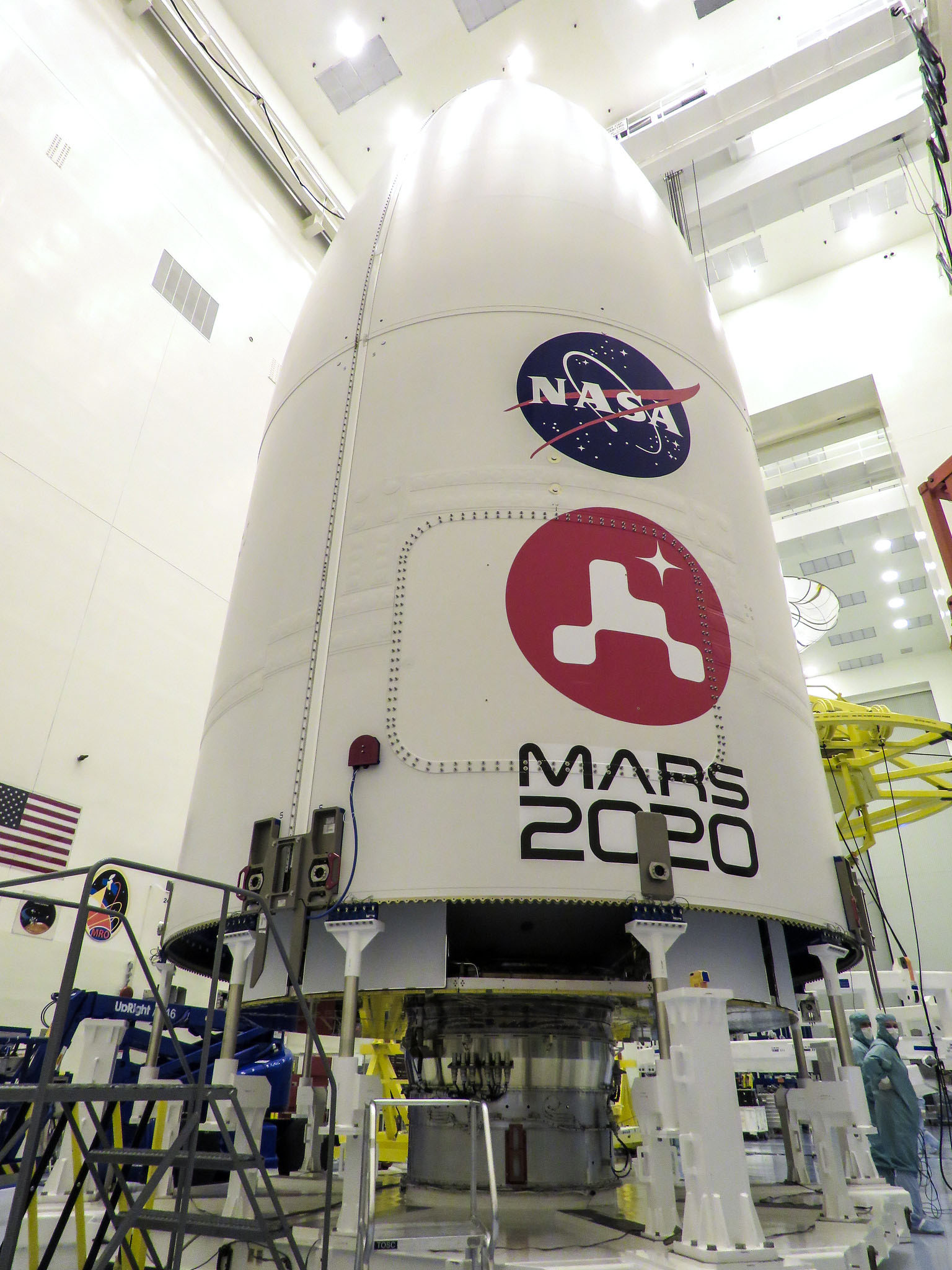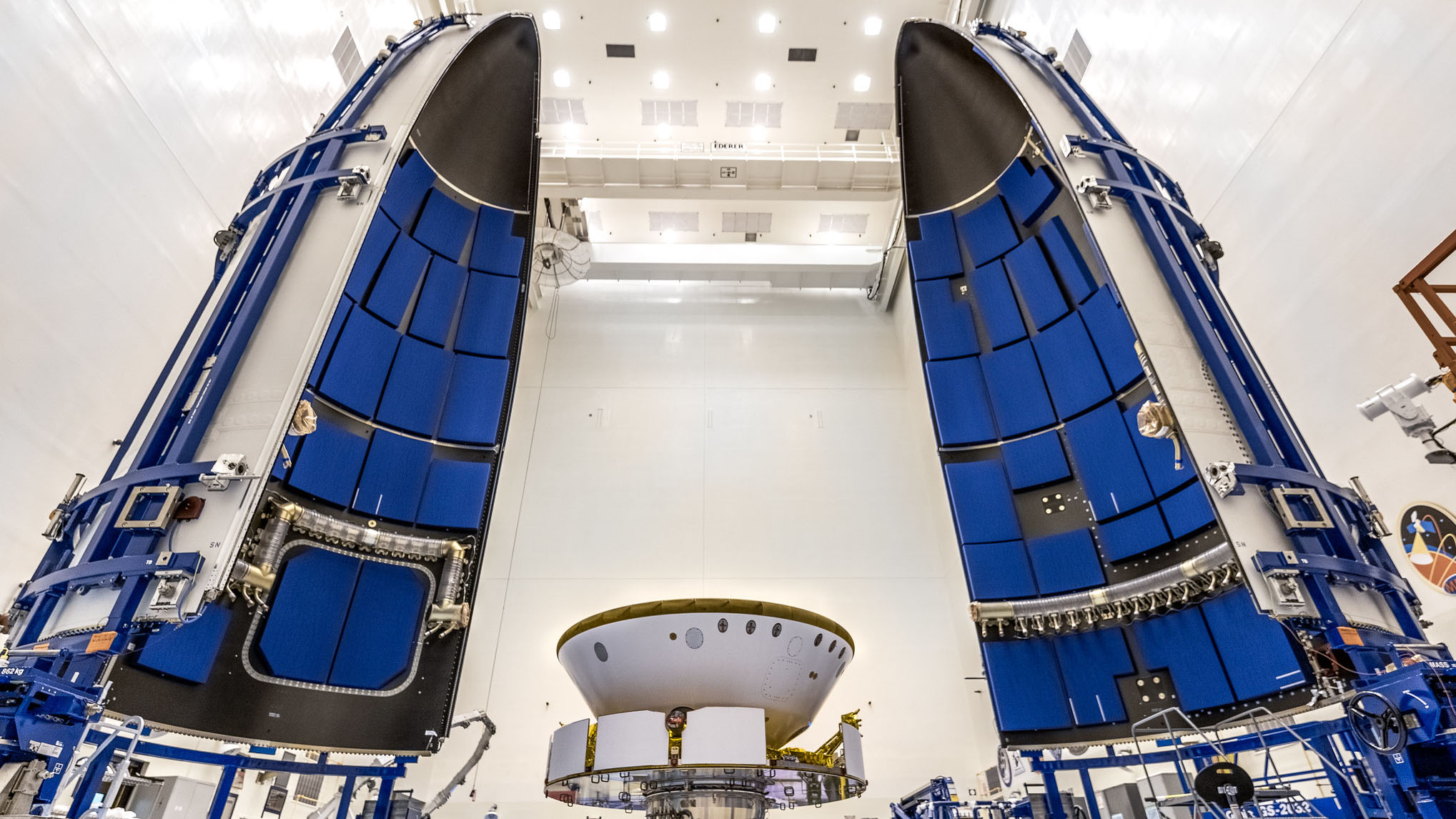
The launch of NASA's next Mars rover has been pushed back yet again.
The car-size Perseverance rover, the centerpiece of NASA's life-hunting Mars 2020 mission, will lift off no earlier than July 30, eight days later than the previous target date, agency officials announced today (June 30).
"A liquid oxygen sensor line presented off-nominal data during the wet dress rehearsal, and additional time is needed for the team to inspect and evaluate," NASA officials wrote in an update today, explaining the cause of the delay.
Related: NASA's Mars 2020 rover Perseverance in pictures
The launch team conducted the wet dress rehearsal, a comprehensive countdown practice session with Mars 2020's United Launch Alliance Atlas V rocket, at Cape Canaveral Air Force Station in Florida on June 22.
Mars 2020's original launch window extended from July 17 to Aug. 11. The "no earlier than" date has been pushed back three times — first to July 20 because of a faulty crane, then to July 22 to resolve a potential contamination issue with ground support lines, and now to July 30.
But there's a nugget of good news in the latest update as well: Mars 2020 has a bit more time to get off the ground than originally thought.
Get the Space.com Newsletter
Breaking space news, the latest updates on rocket launches, skywatching events and more!
"Flight analysis teams have expanded the mission launch opportunities to August 15 and are examining if the launch period may be extended further into August," NASA officials wrote today.
Mars missions have restricted launch windows because Earth and the Red Planet align properly for interplanetary travel just once every 26 months. If the $2.7 billion Mars 2020 can't get off the ground this summer, the mission will have to be put into storage until autumn 2022. That fate befell the European-Russian ExoMars rover Rosalind Franklin, which encountered problems with its parachute system and other issues that could not be solved in time for a 2020 launch.

Whenever it launches during the coming window, Perseverance will land inside Mars' Jezero Crater on Feb. 18, 2021. The six-wheeled robot will hunt for signs of ancient life in the 28-mile-wide (45 kilometers) Jezero, which harbored a lake and river delta billions of years ago.
Perseverance will also collect and cache several dozen samples, which will be returned to Earth, perhaps as early as 2031, in a joint effort by NASA and the European Space Agency. The rover will also test out several new exploration technologies, including gear that generates oxygen from Mars' thin, carbon dioxide-dominated atmosphere and a little helicopter named Ingenuity.
Mike Wall is the author of "Out There" (Grand Central Publishing, 2018; illustrated by Karl Tate), a book about the search for alien life. Follow him on Twitter @michaeldwall. Follow us on Twitter @Spacedotcom or Facebook.
Join our Space Forums to keep talking space on the latest missions, night sky and more! And if you have a news tip, correction or comment, let us know at: community@space.com.

Michael Wall is a Senior Space Writer with Space.com and joined the team in 2010. He primarily covers exoplanets, spaceflight and military space, but has been known to dabble in the space art beat. His book about the search for alien life, "Out There," was published on Nov. 13, 2018. Before becoming a science writer, Michael worked as a herpetologist and wildlife biologist. He has a Ph.D. in evolutionary biology from the University of Sydney, Australia, a bachelor's degree from the University of Arizona, and a graduate certificate in science writing from the University of California, Santa Cruz. To find out what his latest project is, you can follow Michael on Twitter.









